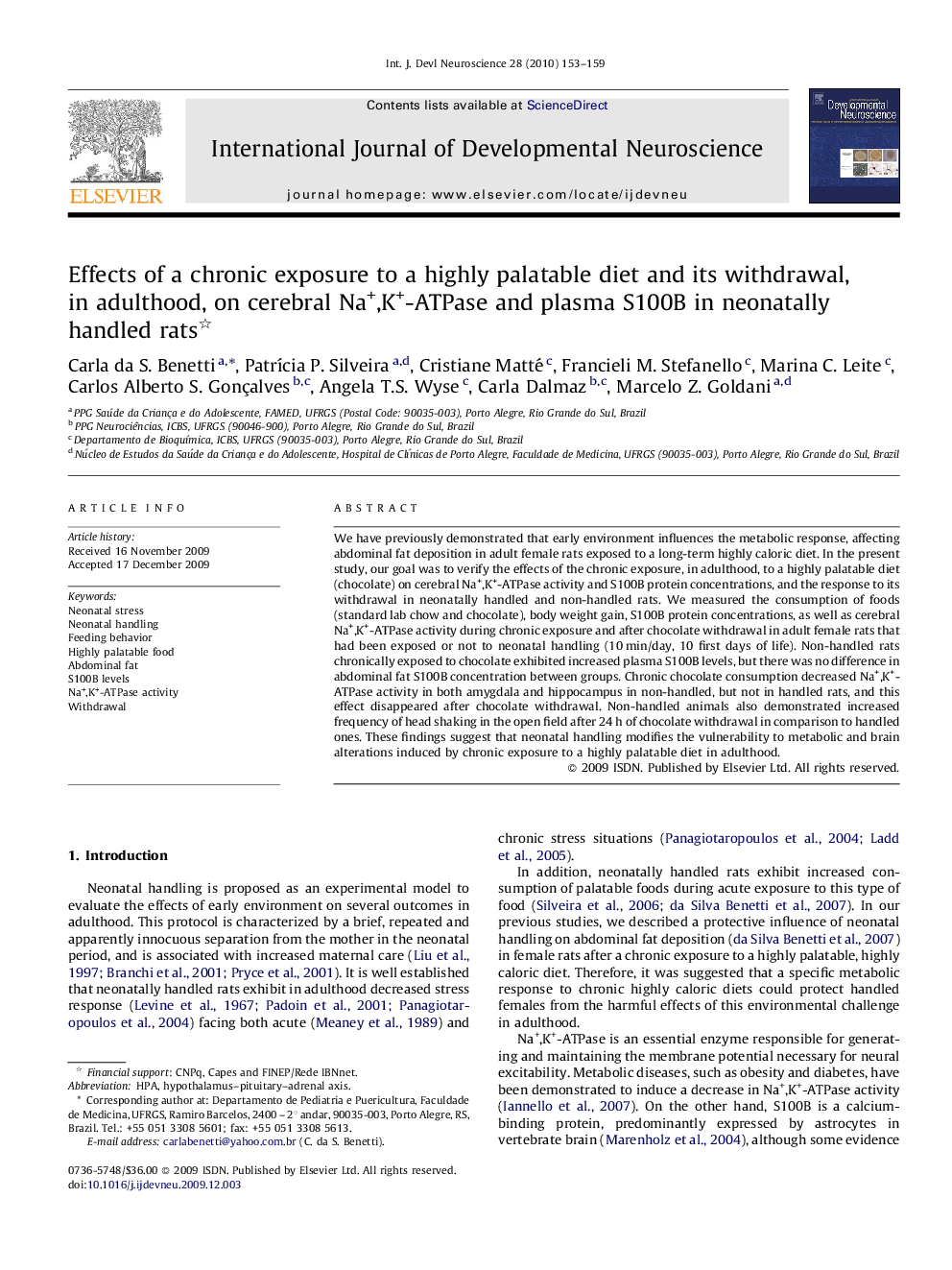| Article ID | Journal | Published Year | Pages | File Type |
|---|---|---|---|---|
| 2786764 | International Journal of Developmental Neuroscience | 2010 | 7 Pages |
We have previously demonstrated that early environment influences the metabolic response, affecting abdominal fat deposition in adult female rats exposed to a long-term highly caloric diet. In the present study, our goal was to verify the effects of the chronic exposure, in adulthood, to a highly palatable diet (chocolate) on cerebral Na+,K+-ATPase activity and S100B protein concentrations, and the response to its withdrawal in neonatally handled and non-handled rats. We measured the consumption of foods (standard lab chow and chocolate), body weight gain, S100B protein concentrations, as well as cerebral Na+,K+-ATPase activity during chronic exposure and after chocolate withdrawal in adult female rats that had been exposed or not to neonatal handling (10 min/day, 10 first days of life). Non-handled rats chronically exposed to chocolate exhibited increased plasma S100B levels, but there was no difference in abdominal fat S100B concentration between groups. Chronic chocolate consumption decreased Na+,K+-ATPase activity in both amygdala and hippocampus in non-handled, but not in handled rats, and this effect disappeared after chocolate withdrawal. Non-handled animals also demonstrated increased frequency of head shaking in the open field after 24 h of chocolate withdrawal in comparison to handled ones. These findings suggest that neonatal handling modifies the vulnerability to metabolic and brain alterations induced by chronic exposure to a highly palatable diet in adulthood.
